I learned how to please other people at a very early age. It didn’t take long for this “ability’”of mine to turn into a deep need for external validation.
There were two kinds of students in my school…
There were the rebels. These kids didn’t want to be in school, caused havoc, and questioned authority. They got sent to the principal’s office.
Then there were the teacher pleasers. That was me. I excelled at figuring out what the teacher wanted from me. I made myself easy to manage and I got good grades.
This approach worked. My teachers were happy, my parents were happy, and I was happy. It was a win-win-win… wasn’t it?
The problem with people pleasing
My people-pleasing approach to school worked well until it didn’t.
Disaster struck (in my teenage mind, at least) in college when my English professor handed me a C grade on my first paper. I had never, ever, gotten a “C” before. I was in shock and I didn’t understand.
I’d followed the directions my professor had given me and I’d given him exactly what I thought he wanted. My formula had always worked before, so why hadn’t it this time?
His reasoning shocked me even more.
When I asked him about my grade, he said, “I don’t want you to write what you think I want to hear. I want you to write what YOU think.”
I didn’t get it. What “I” wanted to write about? MY ideas? Did I have my own ideas? This was the opposite of what I’d always tried to do and what had served me so well so far!
An addiction to external validation
I honestly didn’t have any idea what it meant to have my own ideas. I’d been so consumed by the fear of being judged and the fear of letting people down, that my focus was almost always on what I thought other people wanted from me, what they thought, what they saw as good.
I’d become accustomed to looking to the teacher to tell me if I was good enough, if I made the mark. I learned to derive my self-worth from external sources like my teachers, my parents, and my grades, rather than from within. I’d well and truly fallen into the approval trap.
Praise was like candy. I was addicted to external validation. And as a result, I had no idea what I thought or wanted.
The problem with relying on approval from other people as a speaker or leader Share on X
My professor’s comment made me curious. What would it look like to think for myself and stop basing my self-worth on external validation?
In the end, my disappointing “C” grade was the start of a life-changing journey to learn to trust and believe in myself. It’s taken me many years to stop trying to please other people, let go of my “good girl” identity, and overcome my need for external validation and now I’d like to help you to do the same.
If you’re interested, listen to my interview on the Join Up Dots Podcast where I talk more about growing up as a “good girl.” .
The problem with needing external validation as a speaker
As we’ve seen, when you have a need for external validation, it’s very hard to trust your own thoughts, opinions, and decisions, let alone take a stance on your ideas and beliefs in front of other people.
What if they disagree with you? What if they think your thinking is flawed? What if they don’t rate you at all?
Seeking external validation tampers with both your belief in your ideas and your ability to communicate those ideas.
Yes, we all want our audiences to get value from our presentations. We want them to find what we say interesting, helpful, and relevant. But we can’t base our self-worth on their opinions. We can’t make what they think of us more important than what we have to say.
If we stand up there, hoping to do a great job, that’s us looking for that A+ from our teachers. We’re waiting to be told we’re OK, that we’re enough, that we’re worth something. When we’re being driven by a need for external validation like this, we’re not being present with our ideas and with our audience. We’re second guessing ourselves, looking for clues, worrying, and feeling afraid. It’s a surefire way to not be our best work.

How to stop looking for external validation as a speaker
To be a truly great speaker or leader, your focus needs to be not on what other people think of you but on what you have to offer them. You’re not there to impress; you’re there to help or inspire.
Remind yourself of the information or experience you have that your audience needs to know about. How are your ideas and approaches going to change their lives for the better? What can you give?
If you focus on the value you’re providing, on the help you’re giving, little else will matter, to you or to your audience. You’ll soon find that audience members come up to you after your presentations to thank you for helping them and to ask how they can work with you. What matters is not what they think of you, but how you help them.

Become the leader your audience needs you to be
If you want help clearing the blocks and experiences that hold you back from being the confident speaker you’d love to be, check out my course Speakers Breakthrough/Comfy On Camera and get on the waitlist.
I’d love to help you delight in the limelight and share your ideas with those who need to hear them.
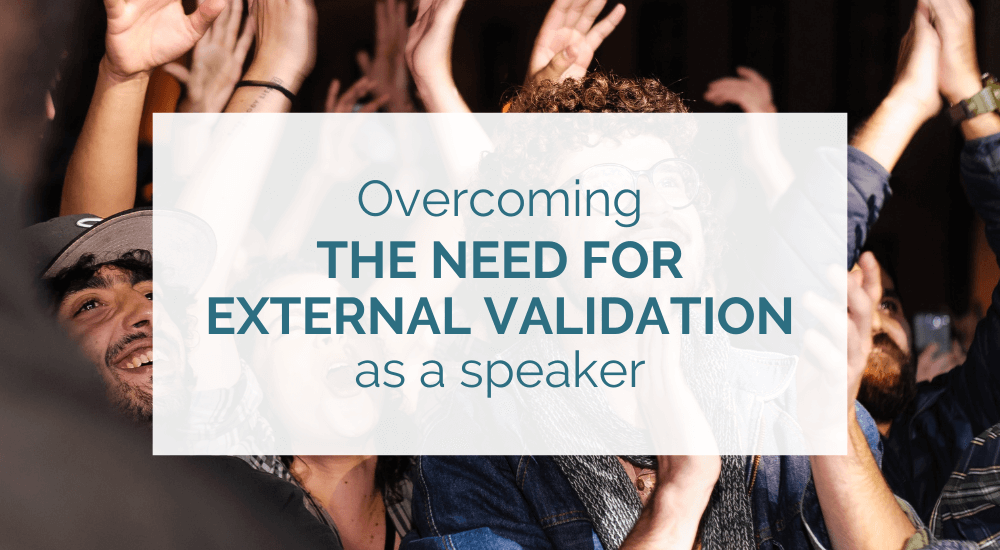
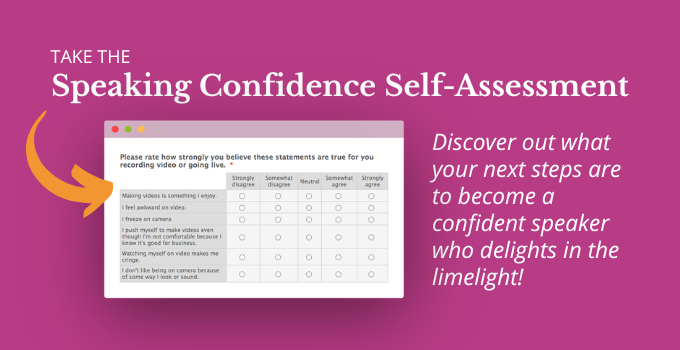

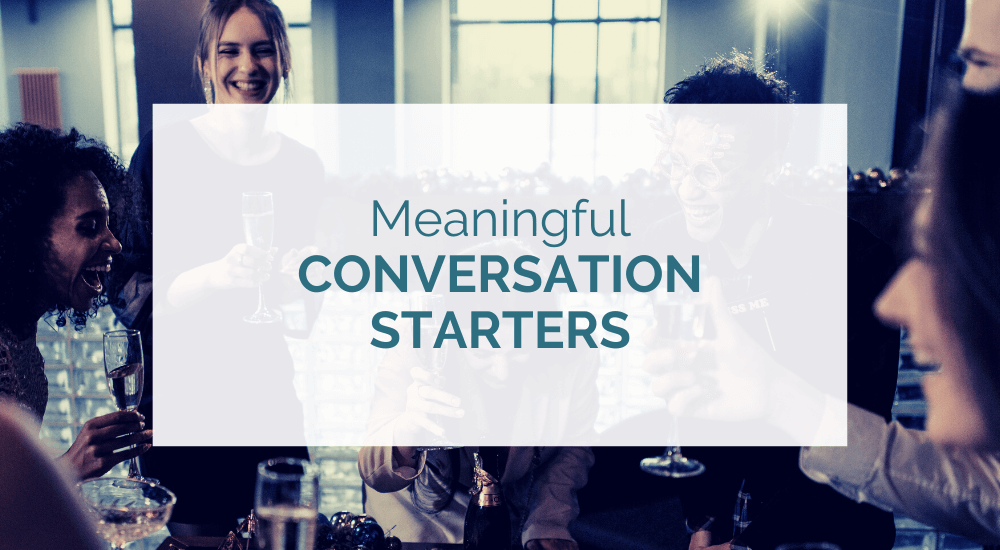
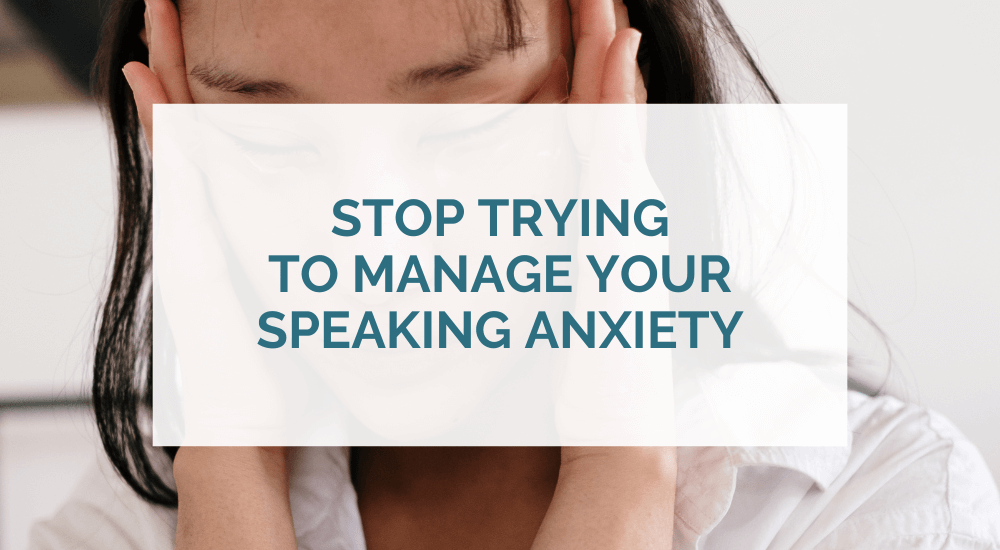
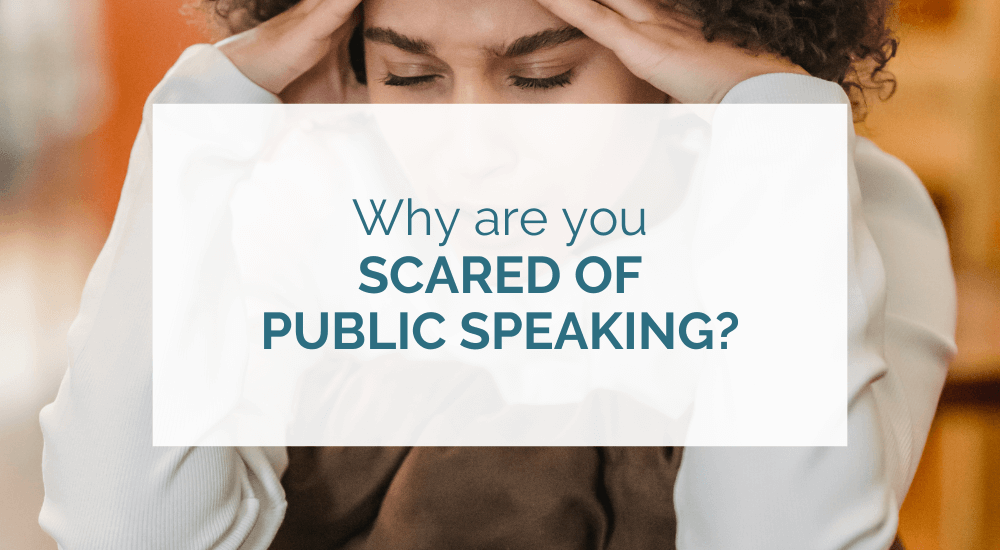

0 Comments